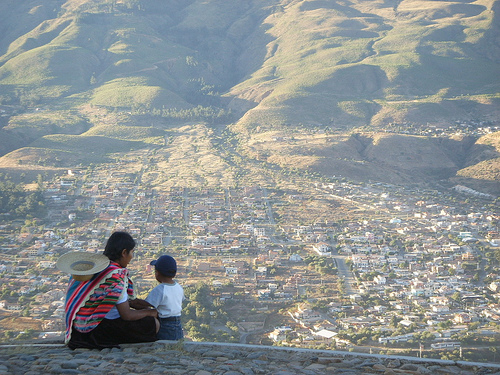 These past few days, I have been investigating opportunities for funding and sponsorship for the Tutor/Mentor Leadership and Networking Conference and other ongoing operating costs associated with the Tutor/Mentor Connection's current and expanding vision. As the T/MC President and CEO Dan Bassill discusses in his recent blog post, the landscape of agencies doing similar work to that of the T/MC has changed drastically since the organization was launched in 1994.
These past few days, I have been investigating opportunities for funding and sponsorship for the Tutor/Mentor Leadership and Networking Conference and other ongoing operating costs associated with the Tutor/Mentor Connection's current and expanding vision. As the T/MC President and CEO Dan Bassill discusses in his recent blog post, the landscape of agencies doing similar work to that of the T/MC has changed drastically since the organization was launched in 1994.
As I continue scouting out grant opportunities and as I begin crafting Letters of Intent to potential funding sources, I am continually attempting to focus and refine my thoughts. It is important for me to learn how to communicate the strategies, goals, and vision of the T/MC in ways that are succinct and compelling. What I have below is not particularly concise and it is still in a crude format, but it is my "working brainstorm" as I attempt to clarify how best to introduce the T/MC to potential corporate funding sources and foundations. Dan has encouraged me to share my progressing brainstorm on my blog. As always, I welcome any feedback or suggestions!______________________________________________
What would happen if every at-risk teen had the support and individualized attention of an adult tutor/mentor?
That is a question we ask ourselves daily. Studies consistently demonstrate that students matched with adult mentors are more likely to stay in school, less likely to use drugs, and more likely to go on to higher-education. In addition, students matched with tutor/mentors gain valuable social skills, increased self-esteem, and improved study habits. Although the benefits of tutor/mentor programs are well-established, thousands of students across the Greater Chicago Area do not yet have access to such opportunities in their communities. Approximately 200,000 students in Chicago live in at-risk neighborhoods and would benefit from matches with a tutor or mentor. Nationwide, an astounding 15 million students need or want tutor/mentor opportunities who are not yet involved in such programs.
Our mission is to provide an organized framework that empowers and encourages adult volunteers to give their time, skills, and support in seeking life-changing solutions for youth who live in educationally disadvantaged environments. This means we connect inner-city youth to adults from various backgrounds who serve as one-on-one tutor/mentors, advocates, and role models to these teens.
The Tutor/Mentor Connection champions tutoring and mentoring throughout the Greater Chicago Area not just in one neighborhood or with one program. We seek to increase the presence of tutor/mentor programs within high-poverty communities on regional and national levels. Our strategy involves the ongoing commitment and support of businesses, political leaders, faith institutions, universities, and individuals.
What does the Tutor/Mentor Connection do?
- We support the growth of new tutoring and mentoring programs: The T/MC acts as a guide and consultant to hundreds of tutor/mentor agencies that seek our advice for starting or building their own programs. Our online resources provide all the information necessary to create and maintain an effective program. In addition to sharing our own ideas online, we also link to over 1,500 other websites and articles relevant to tutor/mentor organizations. Our “Links Library” connects to a wide range of skill-building topics such as grant-writing, process improvement, and training guides.
- We promote the quality and effectiveness of existing tutoring and mentoring programs: Each year since 1994, we organize two capacity-building conferences attended by over 200 leaders of tutor/mentor programs. These conferences provide training on how to effectively lead tutor/mentor programs while fostering camaraderie between program leaders. In addition to conferences, we make information, learning resources, and tools available to any program leader, volunteer, or donor through our free online Tutor/Mentor Institute.
- We point potential volunteers, students, corporate partners, and individual donors to programs throughout the city of Chicago: We built and maintain the first and most extensive database of Chicago-area volunteer tutor/mentor programs. Our interactive, online Program Locator points people to existing programs in their communities and identifies “gaps” where programs are still needed.
- We draw public visibility and support toward tutoring and mentoring programs: We take an active role in educating the public about the value of tutor/mentor programs and about how individuals, businesses, and institutions can become involved as volunteers or as donors. We give presentations to university groups, maintain blogs and websites that receive 9,000 monthly visits and 150,000 monthly page-views, and lead Volunteer Recruitment Campaigns to draw attention and support to programs in the Greater Chicago Area.
- We facilitate collaboration between programs to share best practices and strategies: Through the biannual Tutor/Mentor Leadership and Networking Conference, collaboration meetings, and online forums and conversations, we are the “connectors” in helping tutor/mentor programs learn from each other about current trends and effective practices in the field.
- We use innovative technologies to illustrate and evaluate how we involve the entire community: We utilize Geographic Information Systems (GIS) mapping to illustrate where programs exist and what types of assets (such as businesses, banks, and churches) are “stakeholders” in those communities. We also use Social Networking Analysis (SNA) to measure the impact of the T/MC’s work and to illustrate our role in facilitating connections between programs, mentors, students, and community members.
- We are in-tune with the needs of tutor/mentor programs because we operate our own: While the Tutor/Mentor Connection operates on citywide, national, and even global levels, Cabrini Connection—the second part of our two-pronged organization—works at the local community level. Since 1993, Cabrini Connections annually links 75-80 teens to nearly 100 adult volunteers through one-on-one tutor/mentor matches and other enrichment opportunities. Cabrini Connections keeps the Tutor/Mentor Connection grounded in our work and provides a place for us “model” the best practices we advocate to other programs and to develop innovative new strategies such as our online feedback system for students and mentors (SVHATS). The goal of the T/MC is to help programs like Cabrini Connections develop in every high poverty neighborhood in the Greater Chicago Area and nationwide.
What are the funding needs of the Tutor/Mentor Connection?
While the technologies and strategies described above are integrated into the T/MC’s current actions, none are fully funded. Currently, the organization depends on borrowed volunteer time to innovate and sustain these concepts.
The T/MC has grown the way most small businesses grow. It started with a vision designed to solve a problem. Since 1993, its leaders have volunteered time and talent using whatever funds could be raised to convert the vision into an action plan that is now attracting attention throughout the world.
In many other states, Mentoring Partnerships exist that do similar work to that of the T/MC, yet their annual budgets range from $300,000 to $1 million. The T/MC has never had more than $225,000 in a single year to impact the third largest city in America.
The T/MC aims to “quicken the pace of its progress” and is seeking grants and social investment of $500,000 per year for three years (totaling $1,500,000). These funds will support project management, information collection and analysis, programming, software and hardware acquisition, and will help the T/MC stretch the application of these technologies in its ongoing commitment to expanding the availability and quality of comprehensive mentoring-to-careers programs in Chicago and in other major cities.
The Tutor/Mentor Connection strives to create opportunities for all kids to flourish through caring relationships with adult role models. By expanding our efforts to connect adults to programs serving inner-city youth, we heighten kids’ opportunities to blossom to their full potential and to move from poverty into higher education, jobs, and successful careers.
 This week Tutor/Mentor Connection President, Dan Bassill, and I had a meeting to finalize the May 2011 conference date and location. The next conference will be held on Thursday, May 19th and Friday, May 20th at Victory Apostolic Church in Matteson, IL.
This week Tutor/Mentor Connection President, Dan Bassill, and I had a meeting to finalize the May 2011 conference date and location. The next conference will be held on Thursday, May 19th and Friday, May 20th at Victory Apostolic Church in Matteson, IL.  Dan and I had an energizing conference brainstorming meeting with Pastor Issac Greene (center), leader of Youth Ministries at Victory Apostolic Church, and Bernard Key (left), President of Key Link Technologies. Both Pastor Greene and Mr. Key have an excellent understanding of the organizations, leaders, and needs in Matteson and surrounding regions. They discussed a number of ideas for keynotes that would attract increased conference participation in addition to brainstorming ideas for raising awareness about the conference through a press conference.
Dan and I had an energizing conference brainstorming meeting with Pastor Issac Greene (center), leader of Youth Ministries at Victory Apostolic Church, and Bernard Key (left), President of Key Link Technologies. Both Pastor Greene and Mr. Key have an excellent understanding of the organizations, leaders, and needs in Matteson and surrounding regions. They discussed a number of ideas for keynotes that would attract increased conference participation in addition to brainstorming ideas for raising awareness about the conference through a press conference. 







